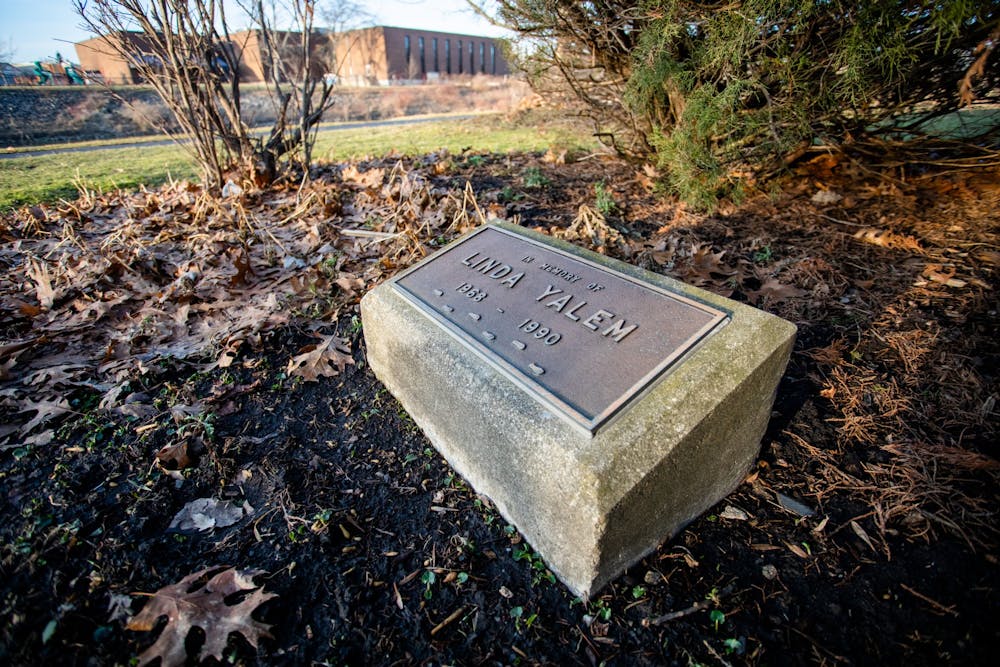After Tyler Lewis, a sophomore business major at Buffalo State University, was fatally stabbed outside of the Ellicott Complex in October, University Police released a statement saying that it had been “at least 30 years” since the last homicide on campus.
So when was the last on-campus homicide at UB?
Altemio Sanchez’s murder of UB sophomore Linda Yalem on the Ellicott Creek Bike Path in 1990 is often mistakenly cited as the last example of an on-campus murder. (Sanchez is serving 75 years to life in prison for killing three women, including Yalem, and raping 12, according to The New York Times.)
But that would be inaccurate. Yalem’s body was found a half mile north of UB’s North Campus, according to UPD Deputy Chief Josh Sticht. A memorial in Yalem’s honor is located near the Ellicott basketball courts.
The last homicide on UB’s campus actually occurred on the morning of Oct. 21, 1984, nearly 38 years to the day of Tyler Lewis’s death on Oct. 14, 2022.
And similar to what authorities have said about the circumstances surrounding Lewis’ death, the assailant and victim were familiar with each other.
Earlier that day in 1984, 21-year-old student Ronald Longmire was involved in an argument with his roommate Richard Boulware.
Later on that morning, Boulware returned to their living space with a group of friends with the intent to fight Longmire in retaliation. A physical altercation ensued as four of the men targeted Longmire.
In his testimony, Longmire claimed to hear them yell, “Let’s kill his ass.”
During the attack, Longmire was placed in a chokehold and, in a moment of panic, reached for a knife.
In the struggle, Longmire stabbed two individuals, Craig Allen and William Drmacich. Drmacich walked away from the incident with a laceration to his abdomen. Allen succumbed to a stab wound to the heart, similar to Tyler Lewis’ fatal stab wound to the chest.
The length of time it’s taken for answers has troubled Lewis’ family. His mother, Roquishia Lewis, insinuated that her son’s race played a major factor in the length of the investigation.
“If it were reversed, this would not have happened,” Roquishia Lewis said in a phone interview with The Spectrum. “I would not be waiting three months. And I hate to say it, I mean, nobody wants to think in 2023 we’re dealing with, you know, playing the race card, but it’s plain as day.”
In the news and the courtroom, Longmire, a Black man, was repeatedly characterized as “aggressive,” “violent” and a college dropout. (Longmire was banned from all campuses by the university, according to In the Public Interest.) Prior to the crime, his reputation was said to be positive in the community.
Longmire was indicted on counts of second-degree murder, assault and two counts of criminal possession in the fourth degree, according to The Spectrum’s archives. The charges came in December, 1984, about a month and a half after Allen’s death.
According to the United States Sentencing Commission, Black men have historically received longer sentences than “similarly situated white offenders.”
Longmire’s trial with an all-white jury reportedly lasted only three and a half weeks. He was acquitted on the charges of attempted murder and second-degree murder on the grounds of self-defense.
According to his defense counsel, jurors credited the expert testimony of UB law professor and psychologist Charles P. Ewing for their decision. Ewing described the complex nature of interracial conflict between Black and white men as well as the natural psychological response of fear that occurs in the body when in danger.
Campus law enforcement has recently described their investigation into the death of Tyler Lewis as in its “final stages,” in a Jan. 30 statement. CrimeStoppers WNY, a not-for-profit organization that assists law enforcement organizations, has offered a reward of up to $7,500 for information on the death of Tyler Lewis.
University Police are urging anyone with information to call them at (716) 645-2222.
The Lewis family’s tipline can be reached at (716) 226-6336.
Crime Stoppers WNY can be reached at (716) 867-6161.
Morgan S.T. Ross is an assistant news editor and can be reached at morgan.ross@ubspectrum.com
Darcy Winter is a copy editor and can be reached at darcy.winter@ubspectrum.com
Morgan Ross is an assistant news/features editor.





